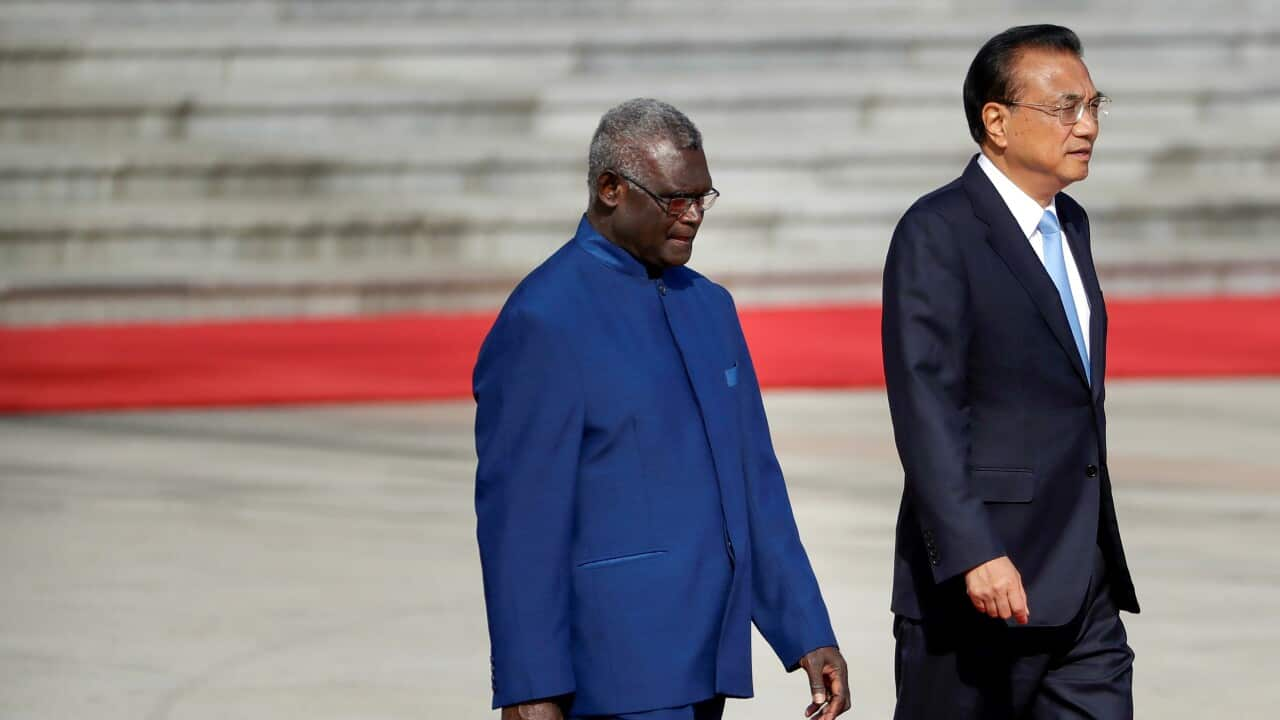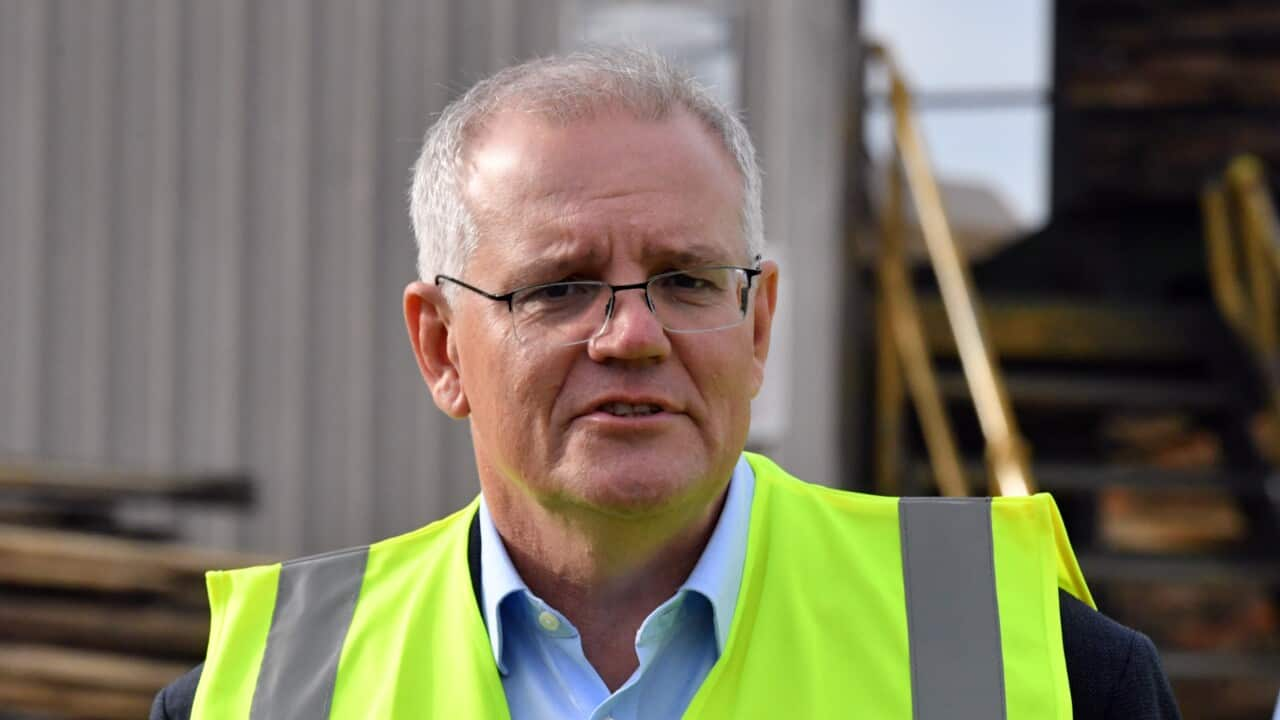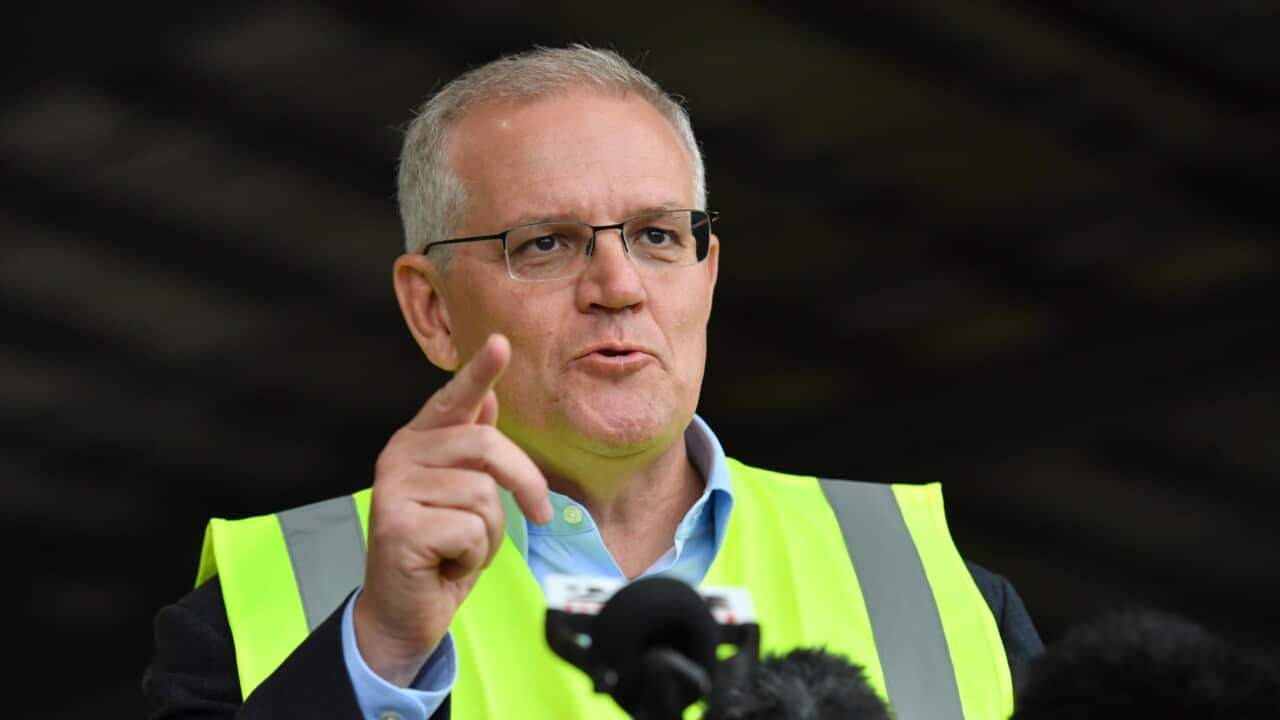Prime Minister Scott Morrison and Labor leader Anthony Albanese have clashed in a tightly contested first leaders debate with integrity in politics and campaign divisions taking centre stage.
Border policy, the economy, an anti-corruption commission, foreign policy and the National Disability Insurance Scheme were among the topics raised in questions delivered by undecided voters to the leaders.
The debate was hosted by Sky News and the Courier Mail in Brisbane - in a key battleground state - and is the first before polling day on 21 May.
Mr Morrison’s performance was underlined by a call to voters that “now is not the time to turn back” as he urged them to maintain faith in his government’s credentials as economic managers.
“It is a choice between a stronger economy and a weaker economy,” he said.
“A stronger future and an uncertain one.”
Mr Albanese in turn asked voters to trust Labor to deliver a “better future” for Australians and improve the integrity of politics.
“They haven’t learnt from their mistakes, they just keep repeating them, and they don’t have a plan for the future,” he said.
“We must do better and we can do better.”
The debate offered voters their first chance to see both leaders go head-to-head, after just over a week of campaigning in key electorates across the country.
While elections are not won or lost in these events, they do draw public attention and give voters a chance to observe how the leaders handle points of conflict.
Mr Albanese was declared the winner of the debate earning 40 per cent of votes from the 100 forum attendees assessing who they thought did better, compared to 35 per cent for Mr Morrison, with 25 per cent undecided.
The opening debate also delivered no knockout punches or notable gaffes from the leaders, but did see them dig in on their campaigns attempts to draw distinctions on key issues of policy.
The question of Mr Morrison and Mr Albanese’s approach to establishing a national integrity commission was among those to demonstrate this divide.
Asked about plans to establish a federal anti-corruption body, Mr Morrison stood by his government’s model.
“Our proposal for a Commonwealth Integrity Commission [is about] ensuring integrity right across the Commonwealth government,” he said.
“It is not a kangaroo court, it is not something that is trying to trial people in the media - it is not about who your boyfriend is or things like that.”
Despite promising to deliver the model during their last term in power, the Coalition did not bring their legislation for the commission to a vote because it didn't have Labor's support.
The design has received criticism from former judges and prosecutors for not holding public hearings into politicians, nor being able to launch inquiries from anonymous tips from the public.
Mr Albanese said a federal anti-corruption commission with the power to hold public hearings was needed to “restore faith in the political system” declaring that the “truth is there is a stench” in Canberra.
“What we need is an anti-corruption commission with teeth that can control its own investigations,” he said.
“It needs to be able to have public hearings if it is in the public interest. I want an anti-corruption commission that will hold the political system to account.”
Border security
The political flashpoint of border policy has also been resurrected in this campaign with the Coalition claiming only they can be trusted to prevent people smugglers from getting back into business.
In Wednesday's debate, Mr Morrison sought to leverage his experience as the former immigration minister who implemented Operation Sovereign Borders and Australia’s boat turnback policy.
“You know I’ll do it because I’ve done it,” he said.
Mr Albanese pledged that Labor would continue to support the border protection policy, saying he was deputy prime minister when his party “established offshore processing”.
Asked if he would maintain the approach Mr Albanese replied: “Yes we will do it”.
National Disability Insurance Scheme
Both leaders were also questioned about the future of the National Disability Scheme by a woman who said her four-year-old son on the program had recently faced cuts to his support.
Mr Morrison backed his government’s handling of the scheme on track to cost $60 billion a year by the end of the decade, saying it was being “fully funded”.
“We are fully funding the national disability scheme - it is a difficult scheme to manage because every single person who has a disability is different,” he said.
When addressing the woman who asked the question he also spoke about how he and his wife Jenny had been “blessed” not to have children that have “had to go through that”.
“For parents whose children are disabled I can only try to understand your aspirations for those children,” he said.
Mr Albanese said he was committed to delivering the NDIS - originally a proposal under former Labor Prime Minister Julia Gillard - pointing to how it is always the Labor Party that delivers these kinds of reforms.
“All of the analysis shows that if you allow everyone to participate in society you’ll get better outcomes - better social outcomes but you’ll get better economic outcomes,” he said.
Mr Morrison also at one point hit back at Mr Albanese saying the policy was a “great reform”, but it was always the Coalition that had to “work out how to pay for these things”.
Mr Albanese said it was Labor that could be trusted to deliver the “big reforms” claiming that the “government has held us back” through failing to have such plans for the future.
China
Foreign policy was also a key focus in the debate in the wake of the Solomon Islands' security agreement with China.
Mr Morrison defended the government’s response to the “very serious issue” rebuffing suggestions from Labor that the government's failure to stop their deal marked a foreign policy failure.
“What I don’t understand [is] when something of this significance takes place why would you take China’s side,” he said.
Mr Albanese claimed the suggestion from Mr Morrison was an “outrageous slur” accusing him of politicising a national security issue.
“We all know that China has changed,” he said.
“This government has been complacent here. We should have been on top of this issue.”
It comes after Mr Morrison earlier this year received backlash for claiming that a Labor government under Anthony Albanese was Beijing’s preferred choice for the election.
The economy
Both leaders also consistently returned to political messaging around the economy during the debate.
Mr Morrison has called on voters to trust his government, pointing to what he described as the Coalition's success leading the nation through the COVID-19 pandemic to an .
But Mr Albanese continues to argue that he would deliver a plan to “lift wages” which remain stagnant as cost of living pressures rise.














